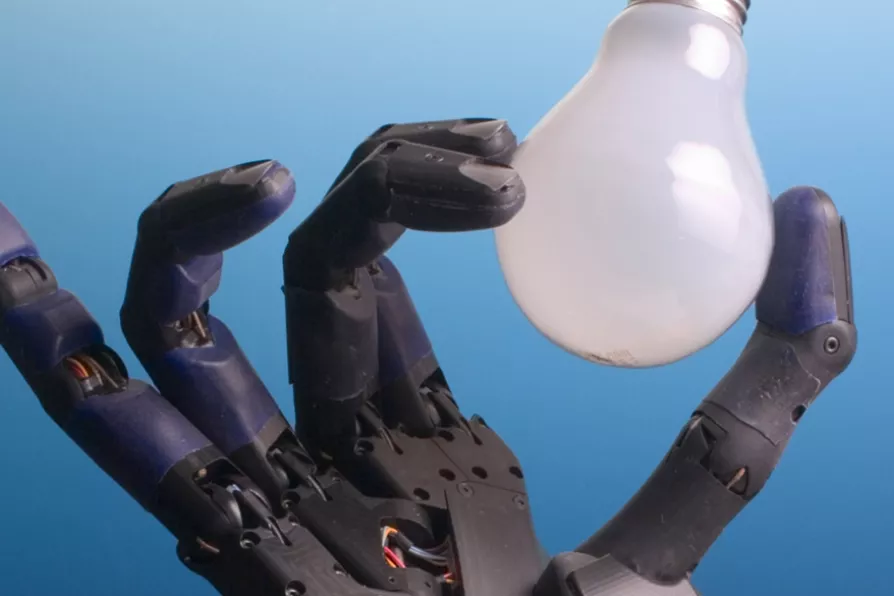As tens of thousands return to the streets for the first national Palestine march of 2026, this movement refuses to be sidelined or silenced, says PETER LEARY

 SOFT TOUCH: A Shadow Dexterous Robot Hand holding a lightbulb
[Richard Greenhill and Hugo Elias/Creative Commons]
SOFT TOUCH: A Shadow Dexterous Robot Hand holding a lightbulb
[Richard Greenhill and Hugo Elias/Creative Commons]
ROBOTS are here. They run our lives, they do our jobs, they find our soulmates, they persuade us what to listen to, how to spend our time and money, they teach us, they connect us to other people.
Your phone is a robot, your checkout is a robot, your smart speaker is a robot, your computer is a robot, your electronics are robots, using the internet means using robots to use other robots.
Perhaps calling all of these technologies “robots” is unnecessarily simplifying. It’s not how we imagined the future of machinery when the first automatons of the industrial revolution tumbled clanking and steaming into factories, or how robots were imagined in most visions of the future in sci-fi comics and films. And yet this is what we have made.

Neutrinos are so abundant that 400 trillion pass through your body every second. ROX MIDDLETON, LIAM SHAW and MIRIAM GAUNTLETT explain how scientists are seeking to know more about them

Olive oil remains a vital foundation of food, agriculture and society, storing power in the bonds of solidarity. Though Palestinians are under attack, they continue to press forward write ROX MIDDLETON, LIAM SHAW and MIRIAM GAUNTLETT












